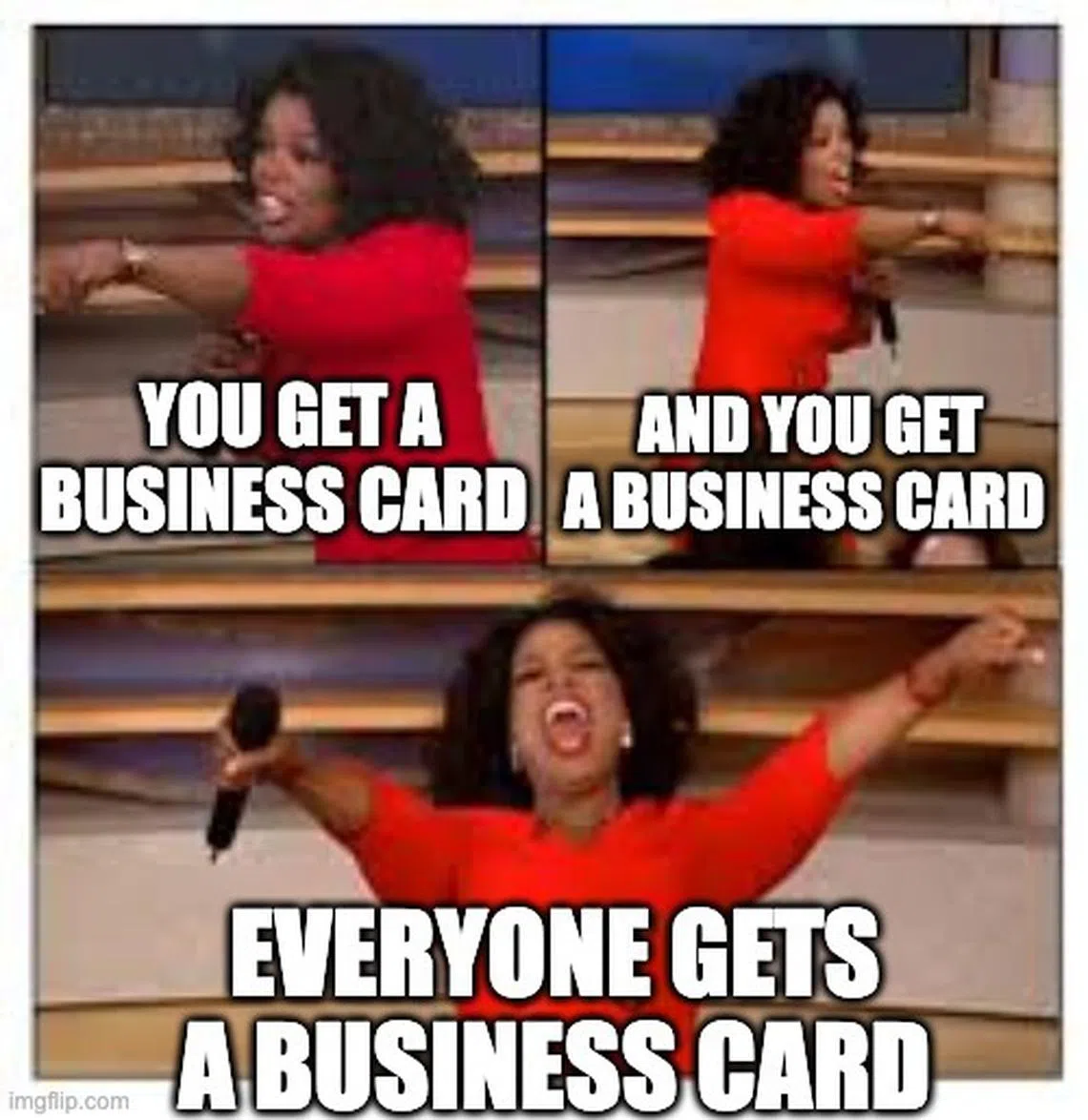👶 If only I were a nepo baby…

- Find out more and sign up for Thrive at bt.sg/thrive
💎 Quality over quantity
When I was in university, I remember observing my peers sprucing up their LinkedIn profiles, scrambling to sign up for networking events and career talks, and attending endless job fairs (especially during hiring seasons).
I felt pressure to do the same and was like a fish out of water as I attempted to engage with seemingly intimidating senior figures at networking events. It felt difficult to develop quality relationships and I often wondered just how meaningful my endeavours were.
Eric Sim, founder and chief trainer, speaker and coach at training outfit Institute of Life, shares in an interview with Thrive that young adults can think about networking as building social capital, rather than racking up numbers in their contact base.
“Know that networking is not about attending networking events and collecting business cards. Rather, it is about building mutually beneficial relationships for the longer term,” he explains.

Sim adds that one can gradually build up social capital with others when networking. “It works a bit like depositing money in a bank and seeing your savings grow,” he says.
According to research by American online recruitment company Zippia in February 2023, 85 per cent of jobs are filled via personal and professional connections, and up to 70 per cent of employees landed their jobs through networking.
“A lot of times, many good jobs are not advertised. From my own experience, I have in fact gotten most of my jobs through my network,” shares Sim.
These days, with the help of technology and the plethora of online platforms to choose from, networking online is a good way to get the ball rolling, especially for those who are nervous or shy. “Reaching out with a sincere introductory message on a career platform like LinkedIn to build some rapport online can be helpful before requesting to meet in person,” Sim says.
🔨 Work it
Taking the first step in messaging contacts on LinkedIn or via e-mail might be a good start – however, it isn’t the main key to success in networking. More needs to be done for networking connections to go the distance.

Here are some 💡 tips that can help you forge quality connections:
- Start with your immediate network: Never underestimate the power of friends and family – even if you don’t come from a very influential one. Sometimes it’s really that long-lost uncle or cousin at the Chinese New Year party that knows someone who can help get your desired internship, or another relative’s best friend who is qualified enough to help you evaluate whether you’re ready for a job switch.
- Understand your value to others, and vice versa: Not everyone you meet at networking events or online is going to be relevant to your goals and interests. Focus on building connections with people who align with your professional aspirations and who can genuinely benefit from your skills or insights is more effective.
- Reciprocity is key: Networking should be a two-way street. It’s not just about what others can do for you; it’s also about what you can offer in return. Building strong relationships often involves helping others in your network when they need it. It’s important to think about what you can bring to the table and communicate that across clearly.
- Be personalised: Effective networking involves personalising your interactions and communication with contacts. Mass emails or generic messages rarely lead to meaningful connections. Tailoring your approach to the specific needs and interests of individuals is more likely to yield positive results.
- Try seeking out local business incubators or co-working spaces for a like-minded community: Co-working spaces and business incubators are common hubs for entrepreneurs and professionals to gather. Even if you’re not an entrepreneur, you can often join these spaces, attend events (sometimes for free!), and network with innovative thinkers and other like-minded individuals.
Networking and building one’s contact base independently is far from a curse, as Sim affirms. “You definitely won’t owe anyone any favours,” he says. “Plus you’ll hone an extremely valuable skill that will prepare you for life ahead – dealing with people.”
TL;DR
- Networking is not a numbers game – you want quality over quantity!
- Consider building mutually beneficial relationships for your connections to last for the long-term
- Family and friends can be helpful in getting you started in expanding your network 🧑🤝🧑
- A personal touch can go a long way in making meaningful connections when networking
- Practice in networking pays off, especially when it comes to building good people skills
Copyright SPH Media. All rights reserved.